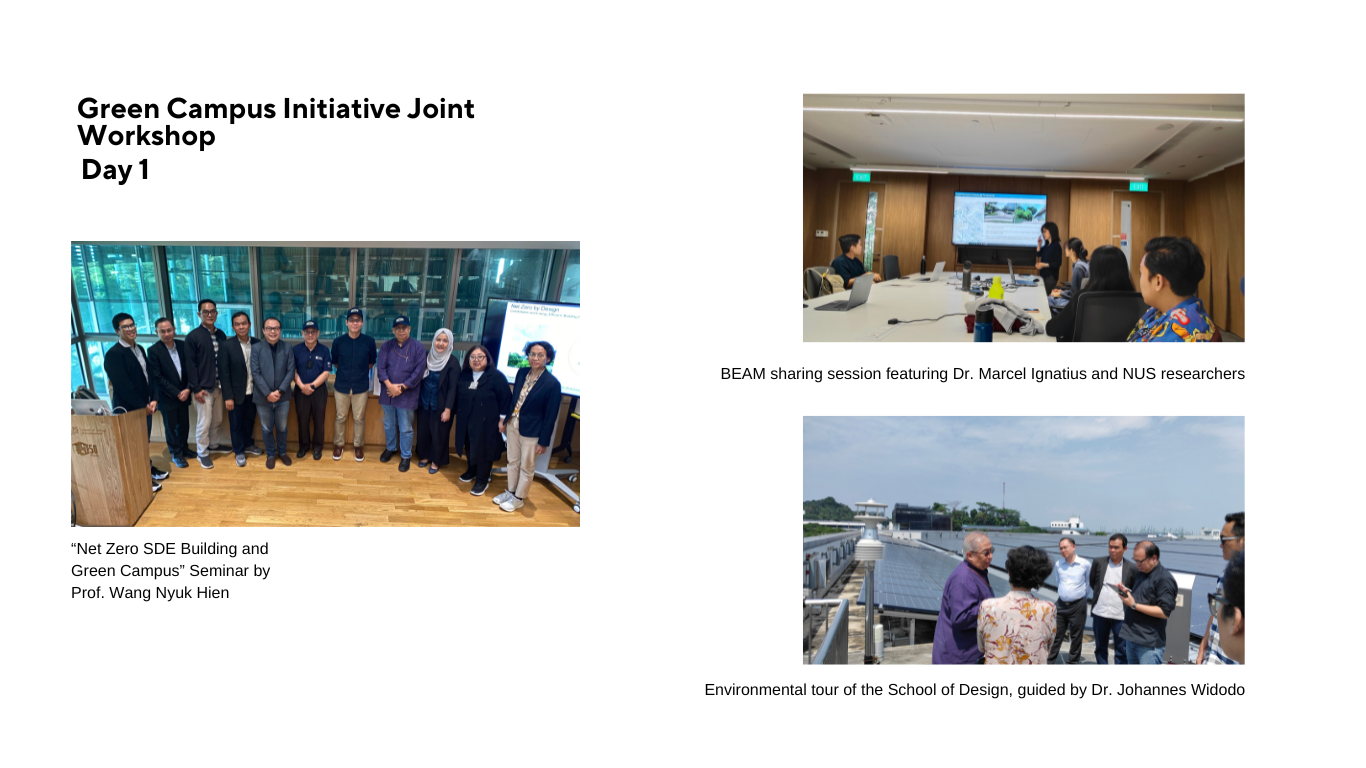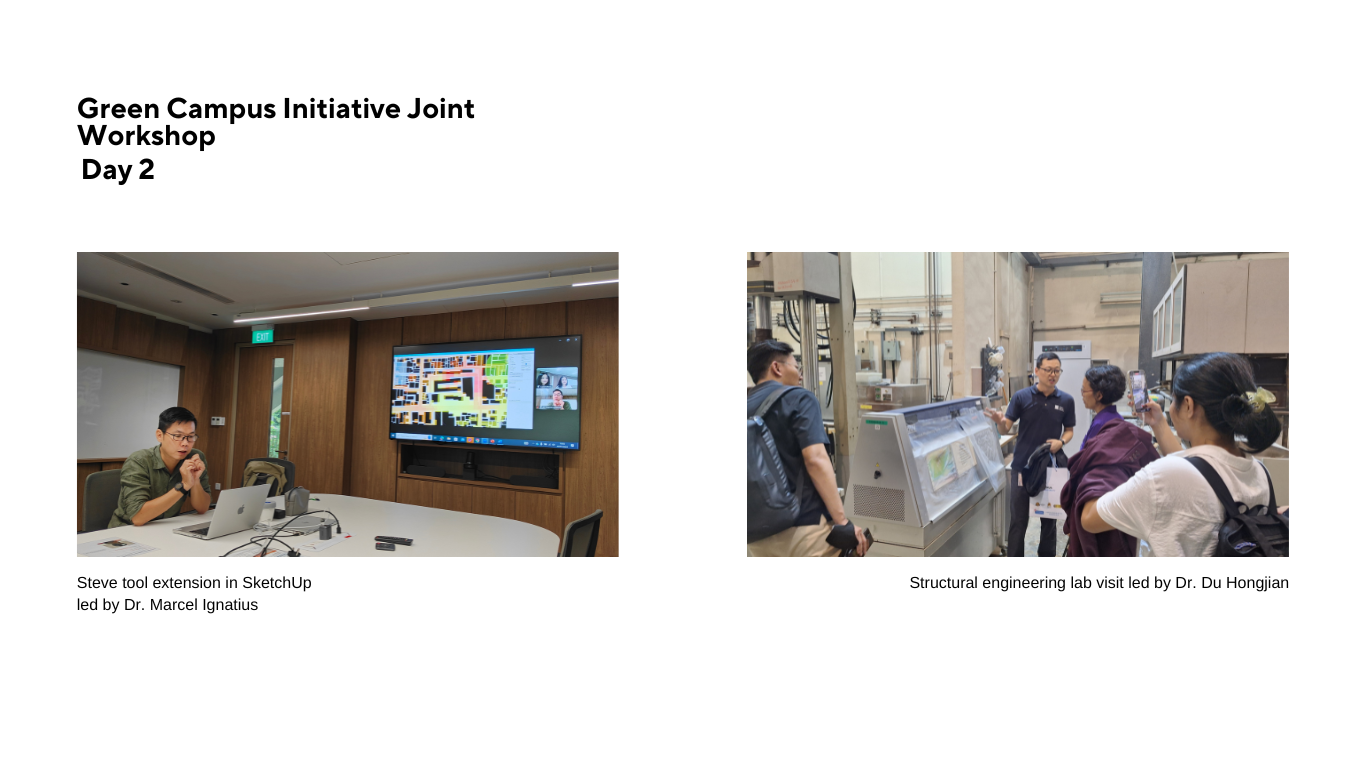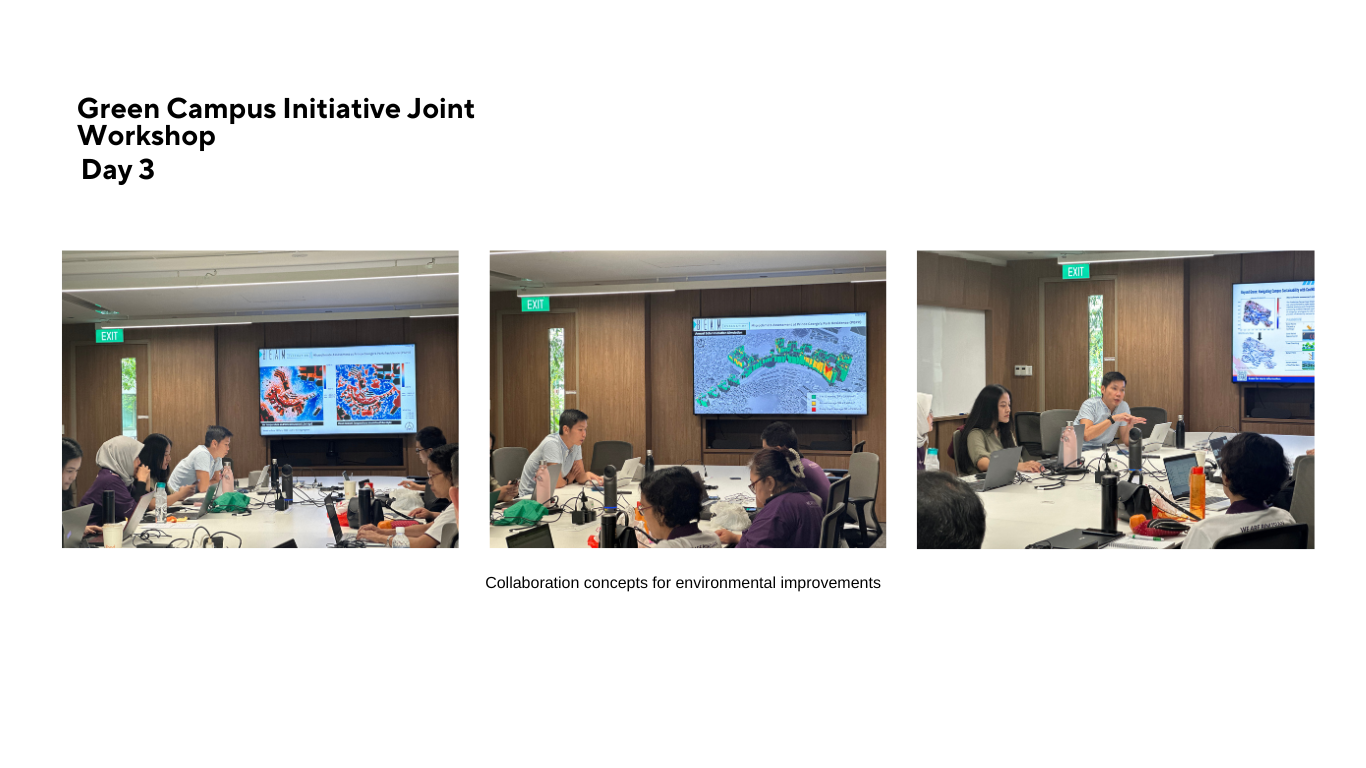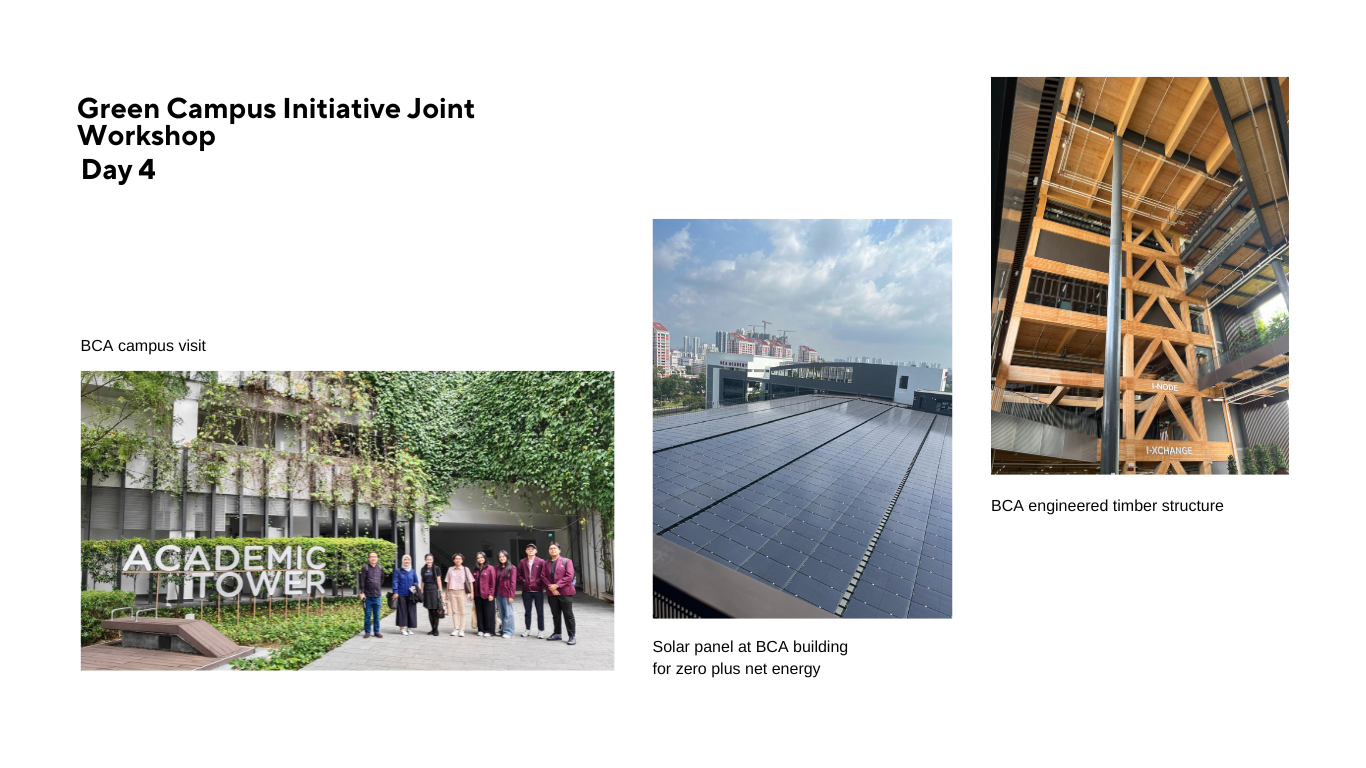
A group of selected students from BINUS University recently had the opportunity to participate in a groundbreaking 3-day workshop at the prestigious National University of Singapore (NUS). The workshop, focused on the concept of zero-energy buildings and the application of innovative tools in sustainable architecture, brought together participants from the Faculty of Engineering and Marketing Communication of BINUS. Students involved included:
1. Anggita Prisilia Soelistyo (Civil Engineering),
2. Farell Tan (Civil Engineering),
3. Fitria Putri Fadhillah (Architecture),
4. Fikri Habibullah (Architecture),
5. Calista Abigail Prayugo (Marketing Communication),
6. Devin Fahrezi Alandeta(Marketing Communication), and
7. Kevin Alif Perdana (Marketing Communication).
Day 1: Net Zero Energy Campus Insights

The workshop commenced with a seminar led by Prof. Wang Nyuk Hien from NUS, who introduced the concept of the “NET ZERO SDE Building and Green Campus.” Participants were immersed in the innovative approaches NUS has implemented to achieve a zero-energy environment, specifically at its School of Design and Environment (SDE). The session provided key insights into how architectural designs, energy-efficient technologies, and sustainable policies work harmoniously to reduce carbon footprints.
Following the seminar, the students participated in an environmental tour of the School of Design, guided by Dr. Johannes Widodo. They learned firsthand how solar panels serve as the primary energy source for entire buildings, and how water treatment systems play an integral role in sustainable urban design. Dr. Widodo emphasized the importance of integrating renewable energy and water conservation into building design, essential components for achieving net-zero energy consumption.
Day one concluded with a BEAM sharing session featuring Dr. Marcel Ignatius and NUS researchers. This session allowed students to engage with experts who discussed their research into sustainable building practices and the potential future applications of net-zero technology in urban planning.
Day 2: Steve Tool Application in SketchUp

On the second day, the focus shifted to the practical applications of these green concepts. A hands-on workshop, led by Dr. Marcel Ignatius, introduced students to the Steve tool extension in SketchUp, a digital tool used to determine sunlight exposure and optimize energy efficiency in architectural design. The hybrid session provided participants with critical skills on how to utilize technology to measure energy usage and environmental impacts for future building projects.
Students also had the privilege of discussing cutting-edge research during a lab session with Dr. Du Hongjian. The exchange of ideas in this session revolved around the importance of precision in design and planning when aiming for sustainability in architecture.
Day 3: Environmental Improvement Concept Creation

The third day was dedicated to exploring the NUS campus, focusing on its green initiatives, followed by a concept creation workshop. Led by Dr. Marcel Ignatius, students collaborated to develop concepts for environmental improvements, putting into practice the sustainable design principles they had learned during the workshop. This exercise underscored the potential for sustainable architectural solutions to create a greener future.
Day 4: BCA Academy Tour and Policy Discussions

The final day saw the group visiting the BCA Academy for a campus tour and sharing session. BCA Academy is renowned for its innovative practices in the field of built environment education. In addition, the students had a chance to meet with representatives from the Lee Kuan Yew School of Public Policy, where they discussed the role of public policy in advancing sustainable development and the importance of cross-disciplinary collaboration in creating effective solutions for environmental challenges.
A Step Towards a Sustainable Future
This collaboration between BINUS University and NUS has provided the participating students with invaluable exposure to cutting-edge sustainability practices and technologies. Through this workshop, students not only gained technical skills in using tools like Steve in SketchUp but also developed a deeper understanding of the broader impact of zero-energy buildings on the environment and society. This experience highlights BINUS University’s commitment to equipping its students with the knowledge and skills necessary to contribute to the future of sustainable architecture and engineering.







Comments :